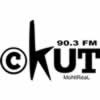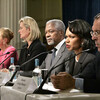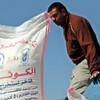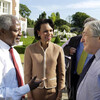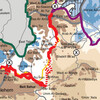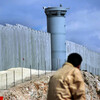
Press For The Rest: Reshaping a loaded term for the media
2 February 2006
Possibly the best source for finding news and information on the daily effects of Israeli occupation, interpretation of major events happening in the Middle East, and establishment of context for the conflict is alternative media source Electronic Intifada (EI). The term “intifada” is Arabic for “popular uprising,” and the intent of EI is to provide a Palestinian voice of the experience under occupation. When I spoke with EI founder Ali Abunimah, he explained that the name EI came out of the 1990s when Palestinian people from around the world started to use the internet as a tool of self-expression and a response to the mainstream press’s distortion of the conflict. Read more about Press For The Rest: Reshaping a loaded term for the media
